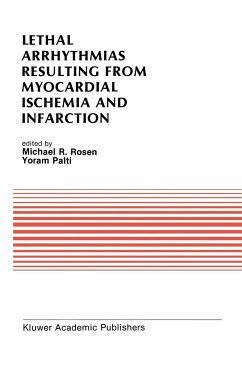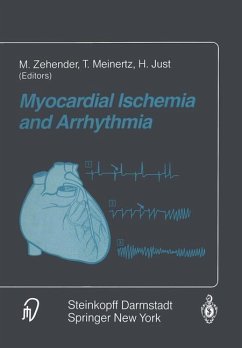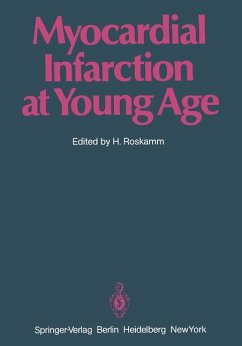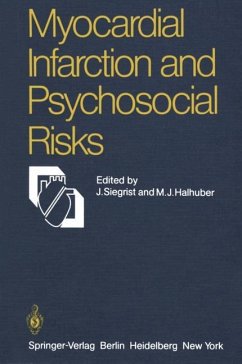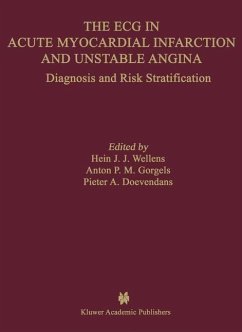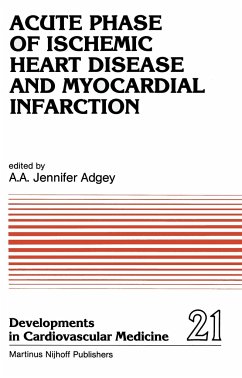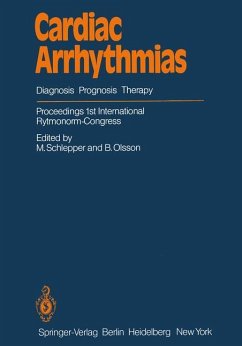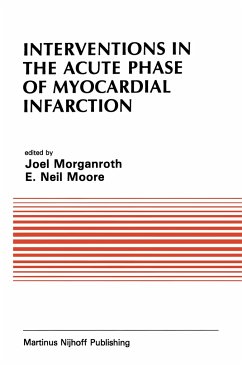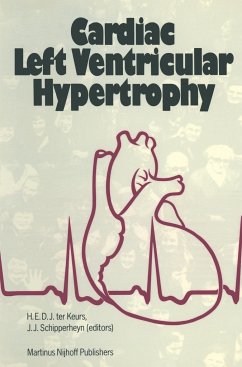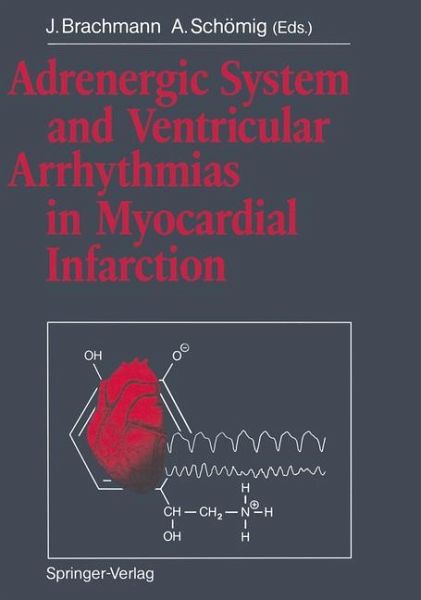
Adrenergic System and Ventricular Arrhythmias in Myocardial Infarction

PAYBACK Punkte
38 °P sammeln!
This book attempts to present new aspects on electrophysiologi cal mechanisms and catecholaminergic contributions in the set ting of acute and chronic myocardial ischemia. Special emphasis is placed on the full scope from basic molecular and cellular mechanisms to experimental models of close clinical proximity. A number of internationally distinguished scientists present their latest findings in this significant research area within the peri meter of cardiovascular disease which continues to lead mortality statistics in most industrialized countries. Contents of this book cover in addition to...
This book attempts to present new aspects on electrophysiologi cal mechanisms and catecholaminergic contributions in the set ting of acute and chronic myocardial ischemia. Special emphasis is placed on the full scope from basic molecular and cellular mechanisms to experimental models of close clinical proximity. A number of internationally distinguished scientists present their latest findings in this significant research area within the peri meter of cardiovascular disease which continues to lead mortality statistics in most industrialized countries. Contents of this book cover in addition to other subjects re lease and uptake of catecholamines in ischemia, regulation of re ceptors, adrenergic contribution to ventricular arrhythmias and mechanisms of ischemic malignant arrhythmias as well as un derlying changes in membrane currents and the electrophysiolog ical response to beta-adrenergic blocking drugs. In addition to original contributions, a number of editorial chapters are in cluded for conclusions and future development in these areas. The main purpose of this book is to provide further inside in two traditionally separated research topics that are gravitating to more collaborative work and inspire more joint research ventures in the future. It provides a comprehensive view on clinically sig nificant problems where basic research may stimulate further studies in man. Therefore this book may prove to be valuable to both cardiologists and interested clinicians as well as basic scien tists.






